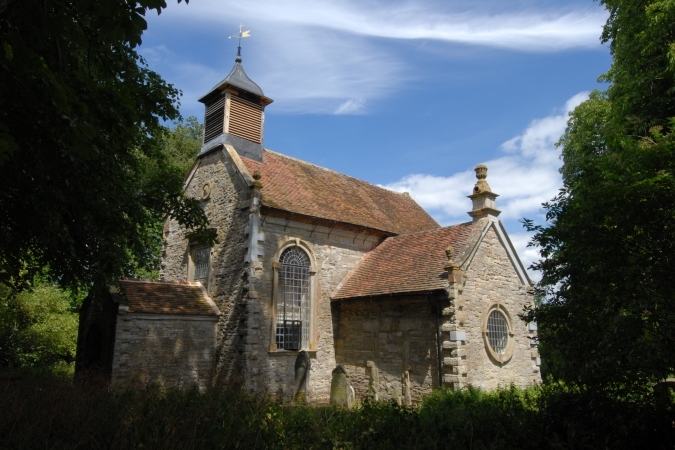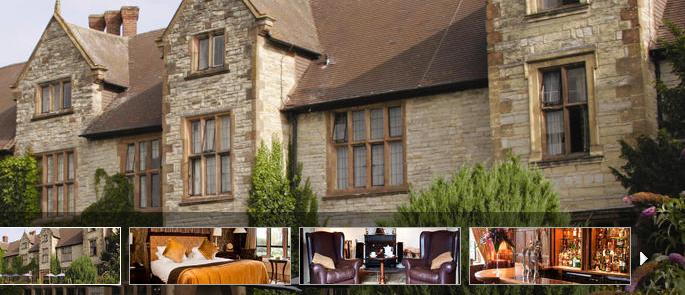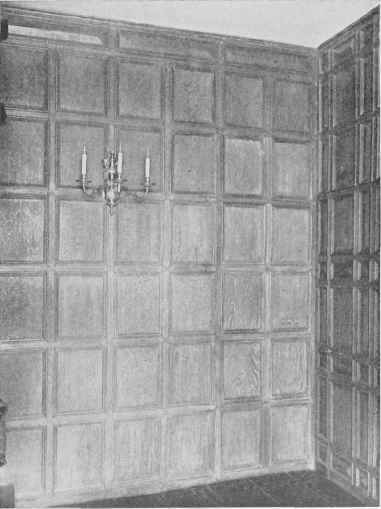Billesley and Shakespeare: Books, Weddings and Fornication November 8, 2012
Author: Beach Combing | in : Modern , trackback
Many times on Strange History we have looked at the possibility that a small community is capable of remembering a tradition over decades, generations and even centuries without any recourse to writing. And Beach has just stumbled on a possible example of this in the deep English village of Billesley in Warwickshire. There are fewer than fifty people living in the village and many of those are employed in the manor house, now the celebrated Billesley Manor Hotel: a hotel that earned a lot of brownie points by helping Beach to write this post. But every single Billeslian knows the story: in November 1582 William Shakespeare, aged eighteen, got married in the church here to twenty-seven-year-old Anna Hathaway, already fat with Shakespeare’s first child, Susanna.

Billesley Manor Hotel
The evidence for the date and Anne’s pregnancy is excellent: the Episcopal register at Worcester and the baptism of their elder child Susanna at the Church of the Holy Trinity in Stratford. The problems begin with the claim by locals that Shakespeare married in Billesley as opposed to one of several other Warwickshire parishes. There is no Billesley parish register from the time. But there is one small fact which gives locals hope. In 1649 Shakespeare’s granddaughter (through Susanna) the then widowed Elizabeth had her second wedding here, when she walked down the aisle with a royalist, John Barnard. It has been argued that the marriage took place in Billesley just outside Stratford because this was where Shakespeare and Anne had married. Then there are modern traditions that secret documents in the crypt will reveal the truth: a bizarre spin off of legends about Shakespeare’s or Greville’s tomb?
Is it possible that a tradition had survived from 1582 in the locality? It is highly unlikely as Shakespeare seems to have been little celebrated in his lifetime. However, it is possible that the tradition was remembered at a later date by family members, and that is why the 1649 wedding between Elizabeth and her cavalier beau is so exciting. The locals may have learnt about Shakespeare’s walk among them at that point. However, nineteenth-century details do little to support the claim. The earliest mention of the idea that Shakespeare married at Billesley (that we’ve been able to find) comes in an essay of Edmond Malone (obit 1812): but it is a deduction not a tradition. Then the earliest local tradition connecting Billesley and Shakespeare comes, again from what we’ve been able to find, in 1896 and there are only some vague rumours about a marriage. Instead:
Amongst the local gossips it has ‘always’ been reported that Billesley Hall boasted a good store of books, to which Shakespeare had access, and of which he made good use; and there is one room in the hall which has ‘always’ been known as the Shakespeare room, from a tradition that there the poet slept when visiting Billesley. The room is panelled in a style, and with wood quite different from that used elsewhere in the hall.

Worse still Billesley has rivals. What about, for example, odious Temple Grafton or foul little Luddington?
At a time when search was being made in all directions for Shakespeare evidence the Shottery [i.e. Luddington] register was overlooked because it was supposed to have been burnt with the church. For years [the register] continued in one of the cottages of the district, only to finally disappear. Fullom says that in 1862 he found many at Stratford-on-Avon who remembered having seen the record of Shakespeare’s marriage long after it was said to have been destroyed; and Mr A.H. Wall quotes the late Mr Charles E.Flower as stating that in his younger days ‘no one dreamed of disputing the assertion that Shakespeare was married at Luddington old church’.
It looks very much as if Billesley is a second best choice in the battle for Shakespeare’s marriage: a matter presumably of local name-calling and rivalry. Billesley perhaps discovered that Luddington no longer had the proof and so local toughs tried to drag Shakespeare and Anne out into the west? Billesley’s best claim to a connection between William and Anne is that it was likely out in the fields somewhere here that Susanna was conceived. Certainly if a couple of Stratford types had wanted to commit fornication in the sixteenth century they couldn’t have found a nicer part of England to lie down in. Other bets on Shakespeare’s marriage: drbeachcombing@yahoo.com


